Peter’s Blog
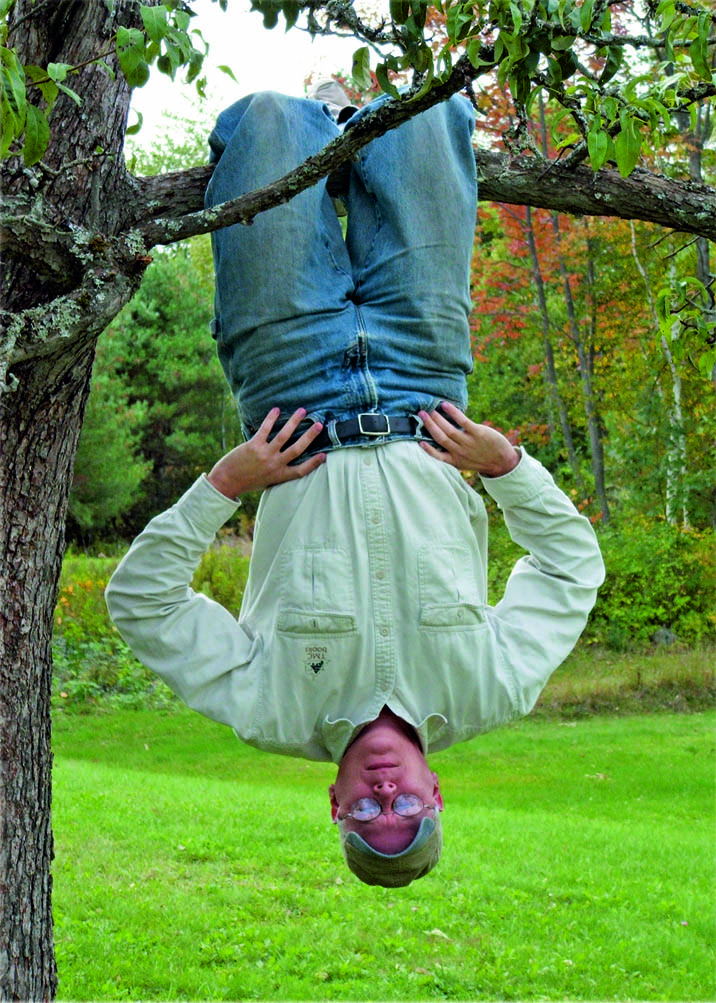
I’m actually right-side up in this photo, it’s our yard that’s upside-down (which explains why my hat doesn’t fall off).
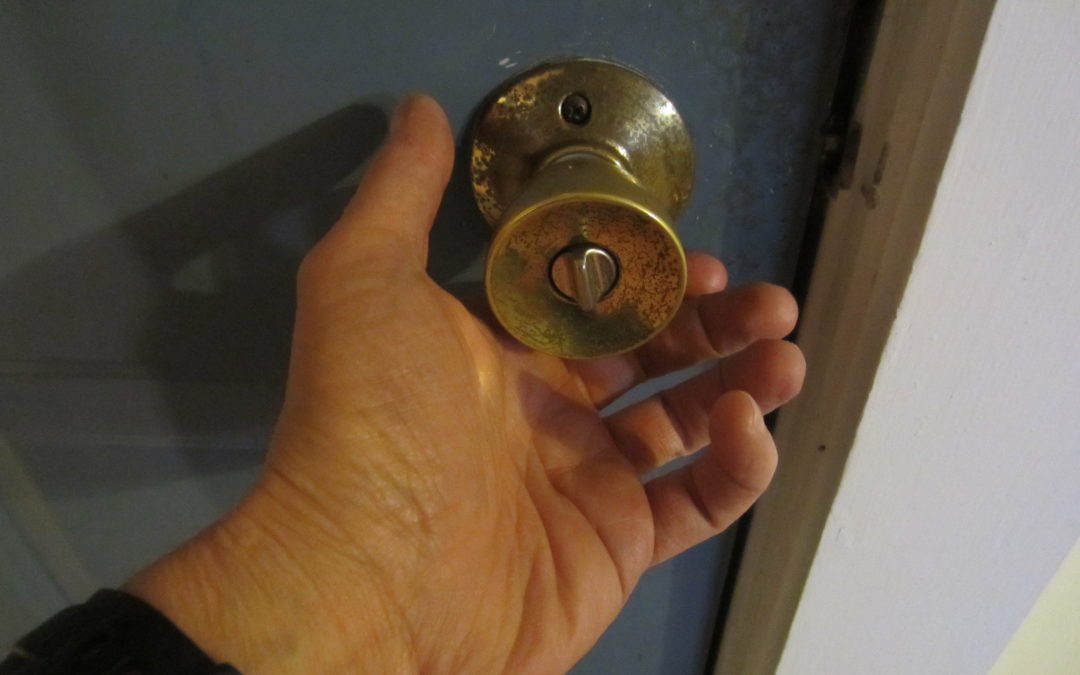
Storing up treasures
We live in the age of stuff, the man thought.
He was staring at his barn from the dining room window. It was so chock full that he recently had to build storage racks in his garage, to hold yet more stuff.
As Christmas approached, the frantic obsession with stuff really bothered the man: the commercials, the crowded parking lots, the platinum cards, the ridiculous fat men in red suits, and those inane songs with their shallow, temporal sentiments.
He shook his head. It’s a never-ending pursuit of things.
And he just kept staring at the barn and wondering Why do we do this? What’s the point? How many cordless drills and coffee makers and broken DVD player does one guy really need? And the answers didn’t come. But the questions kept pounding in his head.
More, more, more—more things, bigger things, more expensive things. It didn’t matter what the things were as long as they had more megapixels, more square-footage, more horsepower, and more cup holders; or came in colors like mulberry and mango; or could be financed for 72 months with no money down.
And we have to have them now! the man barked aloud. No waiting, no saving, no anticipation—just sign here please and then there’s a jingling of keys and you reach for your pen and try not to drool on the contract.
And he listened to the imaginary jingling keys and sipped his coffee ferociously.
You can’t take it with you, he heard himself say to the curtains, So why do we have it at all? And then he shook his head gently and felt a bit disgusted (as if he’d just gorged himself on three pieces of pie), and his eyes glazed over with embarrassment—embarrassment for himself, for his culture, for humanity itself, and for our endless pursuit of stuff.
His mind started spinning and the worthlessness began seeping in and it all made him a little nutty and the barn seemed to bulge before his eyes—squeezing stuff out of every window. Three stories tall and it’s not big enough, he thought. Then his mind wandered back across the snowy road and in his imagination he peered at the new storage racks in the garage and into the rows of containers full of stuff he didn’t really need that he’d bought with money he didn’t really have and he thought For crying out loud there’s room for 58 plastic storage bins! and for one lunatic second he wondered where he’d put the matches.
He started to beat himself up. Have I done anything that really matters? Do I have anything with any real value? Or is it all just plain stuff? And then he thought of Matthew chapter 6, and of his barn so heavy laden, and he felt convicted and guilty.
“Do not store up for yourselves treasures on earth, where moth and rust destroy, and where thieves break in and steal. But store up for yourselves treasures in heaven…. For where your treasure is, there your heart will be also.”
But then the man remembered how hard he’d tried, how many sacrifices he and his wife had made, all the time and effort they’d put in, and his dander got up and he took a stand and said, Now wait a minute, hold on, this isn’t all of it—this is just the stuff. There’s more. Much more!
Just then a pickup truck crunched to a stop in front of the barn. The door opened and a young man stepped out. The man staring out the window recognized the young man’s broad shoulders, the tilt of his head, and the way he hitched up his collar against the cold.
The young man turned, caught the eye of the man in the window, and waved. I could pick that wave out of any crowd, the older man thought, and he waved back and smiled.
And in that instant all the fretting about all the stuff melted away. The young man leaned forward and started jogging across the road. The older man put down his coffee and trotted through the house toward the front door—toward his best friend, toward the rock-hard handshake, the clasp on the shoulder, and the long hug.
Family and friends, the man thought, eternal investments—And yes, thank you God, there are some things you can take with you. And he heard the boots thumping on the porch and the gratefulness of the season flooded over him and he grabbed the knob and yanked open the door for his son.
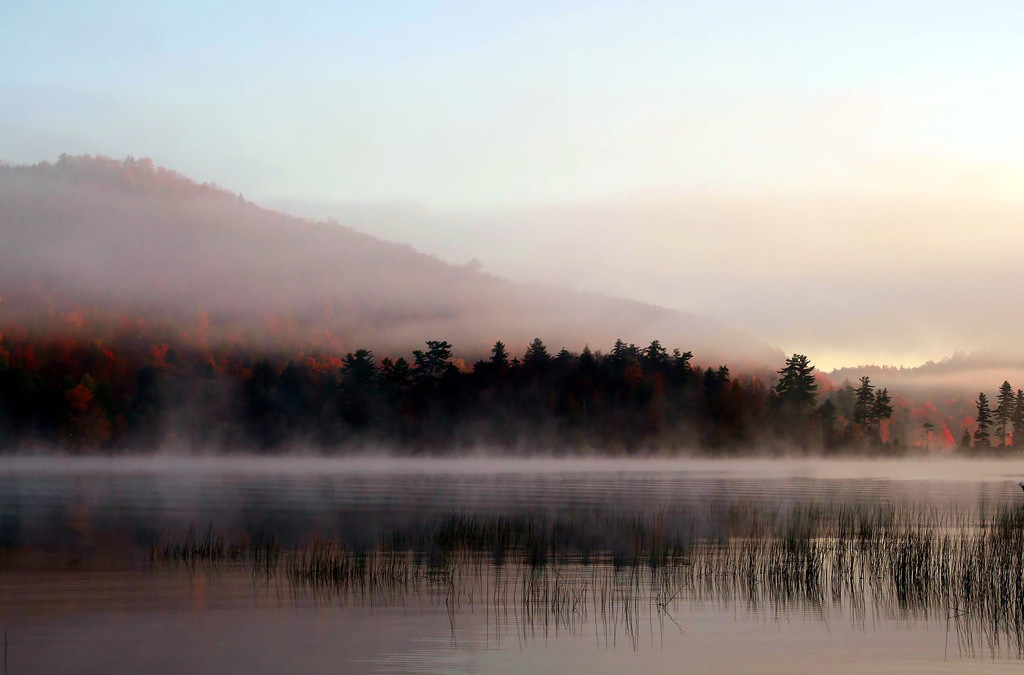
The dock came out to meet us
I wrote this in September 2011, and I wanted to convey in the simplest way that things change…while not really changing at all. Our family has had camps on a remote Adirondack lake for about 100 years, and they are only accessible by boat. The lake never changes, but we do…
In a misty drizzle the color of an old man’s beard the boat skims north up the lake, the two-stroke outboard straining, the aluminum hull skipping across a light chop and banging like a wind chime made from old metal garbage can lids. I’m young and small, hunched into a ball in the bow, the hood of my yellow raincoat pulled down over my forehead, damp knees knocking, sneakers resting on the wet coils of anchor rope, dripping hands gripping the worn edge of the old wooden seat. When I pick my face up into the wind, the droplets pinprick my cheeks and I clench my eyes and duck back down. Looking backward, out of the wind, I smile as I watch my father sitting tall and resolute on the stern seat, his left hand gripping the outboard’s tiller, staring straight ahead as if this were the sunniest of summer days. Turning back down again into my damp, cramped, huddled little world, the raindrops sliding down my hood and splashing all around me, I think that my father must be the biggest, strongest, bravest man in the world.
A mile farther on, having never dared to look again into the stinging mist, I feel the boat tip and turn to port as we enter the shelter of the darking cove. The whine of the outboard drops in octaves, lower and lower, to a murmur, then coughs twice and the world goes silent, save for the sizzle of the mist peppering the lake — a sound like bacon frying far off.
Looking up, I see our cabin tucked under the fragrant boughs of the balsams, and the needled path that leads between the dripping ferns down to the dock. For a moment it seems as if my father, our boat, and me, are all fixed in place, and that the cabin and the trees and the path and the ferns and the dock are all gliding toward us across the black skin of the lake. When you’re six, it seems as if such things can be so.
The gunwale of the boat and the side of the dock now merge, sliding on parallel tracks just an inch apart, ever slowing until the last possible moment when my father reaches out, the brass catch in his wet fingers, and clips the brass ring with a crisp, metallic click. Seconds later, we hear the click come back to us, softer now as it echoes off the grey silhouette of the hills beyond the far shore.
The boat rocks hard as my father jumps up onto the dock and I hear his footsteps on the damp wood and then I see his boots pointing at me and a moment later I feel his big hands in my armpits, lifting me from my seat, swooping me through the air, planting me firmly on the dock, steadying me while I catch my balance, and then letting me go. “We made it, son,” he says.
Forty-five years later, on the same lake and in the same boat, the same father and son motor north toward the same cabin in the same gray drizzle, the hull making the same aluminum slaps against the light chop. My father is in the bow now, hunched under his raincoat and watching the drops fall from his hood and splash about his feet. My left hand is on the tiller and I’m staring straight ahead into the stinging mist, not because I’m big or strong or brave, but because when you have to get up the lake in the rain, that’s just what you do. Dad looks back at me, and smiles. He seems old and small.
Soon I bank the boat to port and throttle the motor down, then down some more, then I let it die in coughs and we drift in toward the dock. It’s smooth here in the dark cove and the air hangs with the pungence of the north woods and the dock glides out to meet us. Just before the ferns brush the bow, I reach out and clip the same old brass ring, and the same metallic click bounces softly back to us from the same distant shore.
I jump up onto the dock and walk along the damp boards toward the bow of the boat, then I turn and crouch and reach down into my father’s armpits and lift him as he works to stand. I guide him as he steps carefully up onto the seat, and then up onto the dock. It’s slippery and I don’t want him to fall. I steady him for a few moments while he catches his balance, then I let him go. “We made it, Dad,” I say.
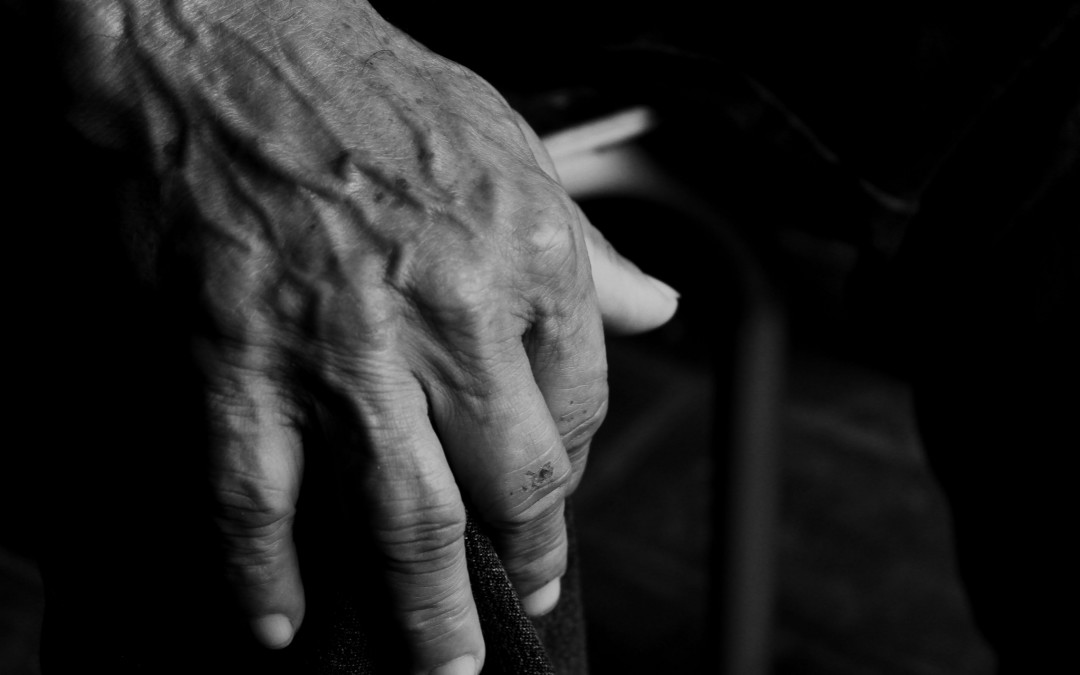
I love you without words
This was written in April of 2012. It’s hard to watch our beloved parents age…
Two weeks ago my dad opened the door to his Jeep, hopped up onto the rocker panel, and tried to heave a ladder up over his head and onto to the roof rack. Midway through the arc the ladder got away from him and he lost his balance and pitched over backwards. At eighty-six, Dad isn’t as light on his feet as he used to be, and if this had been a gymnastics competition the judges would say that he blew the dismount. Or, to be more precise, instead of sticking the landing on his feet, he crashed down onto his right arm and shoulder, both of which promptly shattered.
I called a few days later to see how he was getting on and found him in a Vicodin-induced stupor, still mentally afloat and attached to the world, but drifting around a bit: a little dinghy on too long a mooring line. His arm was killing him (it would spasm every time he moved) and he was having trouble sleeping (he spent his nights in a reclining chair because he couldn’t get out of bed without help). I drove down after work the following Friday to see what I could do to help and to cheer him up.
I got in very late and found Dad slumped over awkwardly, dozing in the recliner in his living room, the history channel blaring loudly, a cup of stale coffee on the table next to him, his loyal dog at his feet. His arm and shoulder were in some sort of sling contraption which immobilized everything but didn’t hide the trauma — the pneumatic swelling, the purple-green discoloration, the obvious deformity. But he roused readily enough, smiled warmly when he saw me, and (figuratively) shrugged off the damage as mere inconvenience.
It’s desperately hard to watch your parents get older; to see their energy, vitality, and vibrancy ebb, to find the list of things they can do getting ever shorter. A couple of years ago we told Dad, “No more chainsaws.” And now, it seems, we must add, “No more ladders on trucks.” Independence is indeed a fleeting thing.
And so I stayed with my dad for the weekend — and he needed help with everything: getting his meals, sorting out his meds, putting on his shirt, climbing in and out of the car, getting out of bed (he’d blow a whistle several times each night and I’d come downstairs to assist him.)
Late on the last evening, Dad shuffled out of the bathroom. “Pete, I need help,” he said. His sweatpants hung low and his slippers weren’t on quite right. His teeth and hearing aids were out and his glasses were cockeyed. He needed a bath and a shave and a hug. I followed him slowly back into the bathroom and stood with him by the sink. He looked down and asked quietly, “Can you wash my hands?” Because of the apparatus holding his arm and shoulder in place, he only had one free hand, and he just couldn’t manage it. As I ran the warm water he took another halting step toward me and reached out his good hand. I took it in mine and gently worked up the lather with a bar of soap.
When I was a child I was convinced that my dad could lift anything with those hands of his, could crush a brick, could drive nails with those big calloused paws, but now his fingers seemed delicate and the skin on his palm was baby-smooth, thin, and almost translucent, like the skin of a grape. I took extra care for fear that I might slough it off while scrubbing.
Dad stood next to me, small, elderly, bent, and in pain. Tired. A little unsteady. It was late and we were alone. A shadowy bluish light flickered from a late-night movie in the other room. The dog lay fast asleep on a rug. The only sound was the gentle splashing in the sink.
Telling my dad that I love him has always come easily, the words flowing warmly like water from an open faucet. But on this night, as I carefully washed his old hands in his old sink and looked into his old weary eyes, I didn’t have to say a thing.
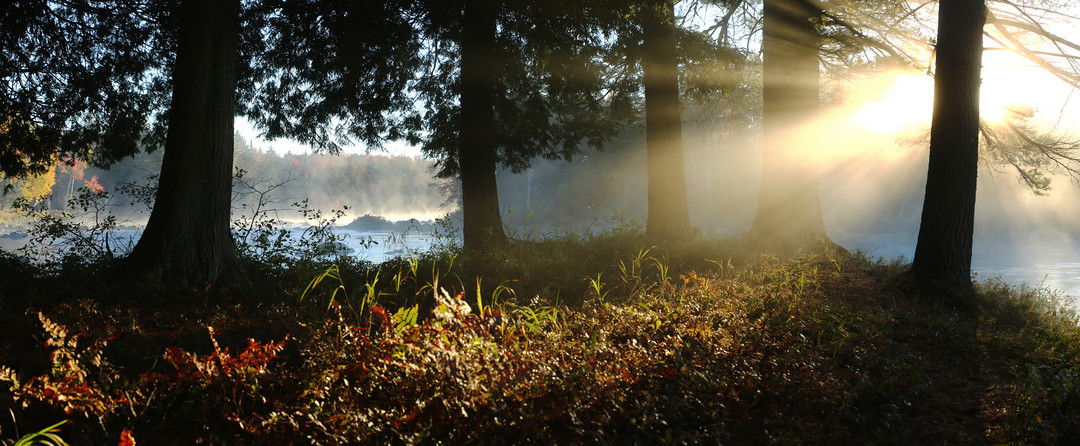
A river always flows downstream
I wrote this story in 2007, about a five-day canoe trip my dad and I made down the Raquette River in the Adirondack Mountains of New York in 1986.
I passed Dad on the trail—he walking west, me walking east.
I served him a wink. “Better pick up the pace there, Dad,” I said.
“You just wait to see the load I left for you,” he volleyed back, returning my wink with a bit of backspin.
This was day two of a 75-mile canoe trip deep into the core of the Adirondack Mountains and a rainy September night had given way to the sun and the sun rose through heavy mist and colored our world in brilliant oranges and reds.
We were portaging between Utowana Lake and Raquette Lake on the Marion River Carry, a half-mile path that ages ago had been the right-of way for one of the shortest railroads in the world.
When I reached the Utowana end of the carry, I found a pack-basket overflowing with canned food, and I remembered Dad’s wink.
Dad and I went back and forth like this for much of the morning. I was 26 and fit; Dad was 60 and not as fit, but this was no contest so we both just plodded along under our loads, passing each other and trading wisecracks and winks.
This was Dad’s second trip along this portage and I had grown up hearing the stories of the adventure he’d had with his father, my grandfather, back in 1950. He told me about the heavy wooden canoe and the rain and the bugs and of “Fig Newton Surprise,” a secret family recipe invented on that trip that began: “Soak a box of Fig Newtons overnight in Long Lake, accidentally drop into campfire, fish out with stick….”
And he told me about the Marion River Carry, of passing his father on the trail, and of the old steam locomotives that they had found abandoned in a clearing at the west end of the portage.
“Oh Pete,” he always said. “It was the best trip ever.”
As the morning wore on, Dad and I wore down. Each load bore deeper into our shoulders and our feet grew sore. The teasing gently fell away and the winks became half-hearted. When I passed Dad on the final lap, he didn’t even look up.
We had left the canoe for last and it was my turn so I flipped it over, heaved it up, positioned the center thwart across my aching shoulders, tipped the bow down, gained my balance, and set off. Despite the long morning and the heavy loads, I was determined to make the carry in one shot so I gritted my teeth and fought back every thought of resting. My feet were wet. My knees hurt. Balsam needles stuck to my sweaty forehead.
When I finally reached the Marion River, which would carry us in time down to Raquette Lake, I jammed the bow of the canoe in the fork of a tree and dropped the stern onto the soft ground.
“Well Dad, I did it,” I said, triumphantly.
Dad was facing away from me, looking into the overgrown clearing at the end of the trail. He didn’t turn around. His shoulders were slumped. His hat dangled from his left hand.
I walked over and stood behind him.
“Dad?” I said.
“They were right here,” he said softly, gesturing toward the blackberry brambles with his hat.
Then he turned to me slowly and I saw the red in his eyes.
“The trains,” he said. “They’re supposed to be right here.”
Then he took a step and fell into my arms.
Dad smelled of wet wool and campfire smoke and citronella. His two-day beard scratched against my cheek. It was autumn and the sun glowed orange through the trees and Dad and I were alone and I wrapped my arms around him and just held on.
Over Dad’s shoulder I watched the Marion River, its dark, tannin-stained water flowing to the distant lake as it had since forever began. A crimson maple leaf floated down through the braided current, wrapped itself around a half-submerged boulder, and began spinning in the tiny eddy on the downstream side.
For a few quiet moments the world paused and the leaf stayed put and the sun hung in the sky and Dad hung in my arms. He was shaking gently, rhythmically, and I felt a catch in his breath now and again. From way down deep the wetness of the decades and the lost trains and the memories of this trip so long ago ran out of Dad’s eyes and down my neck.
“I wish my father was here,” he whispered.
The maple leaf broke loose in the current and floated away.


TDSP 2-4: The Shooting of Rusty, 1, 2, 3 - The Dad Story Project
www.buzzsprout.com
An innocent foray into raising chickens leads our family down a sinister path as our rooster slowly goes insane. Danger lurks around every corner until we no longer bear it and drastic measures must be taken. And while things end with a bang (seve...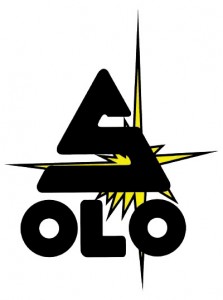
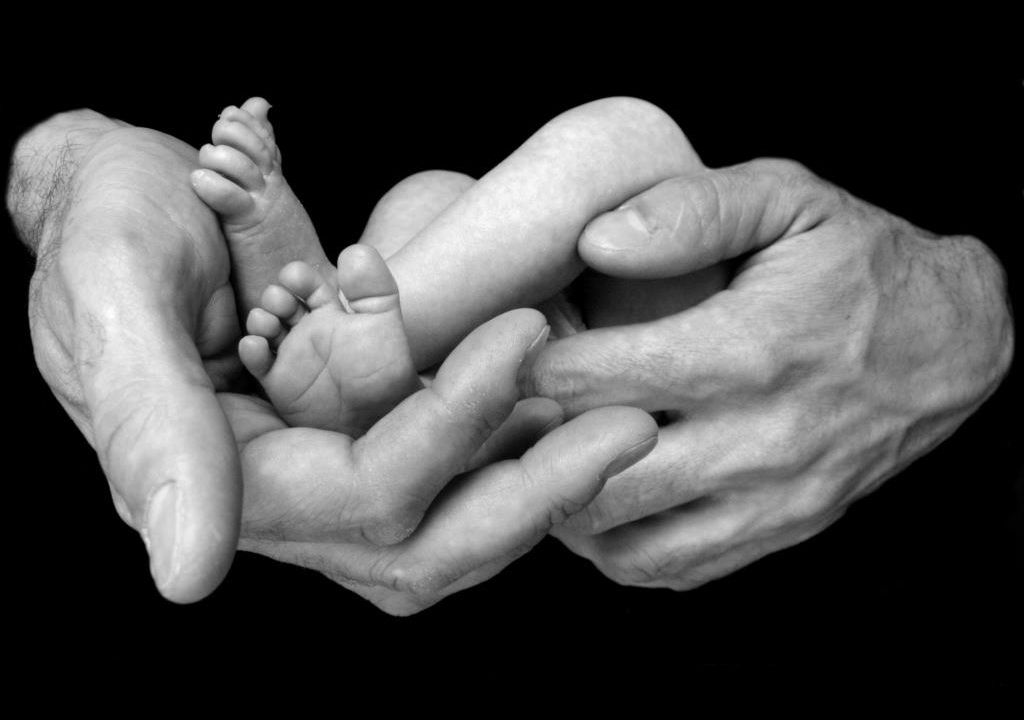



Recent Comments